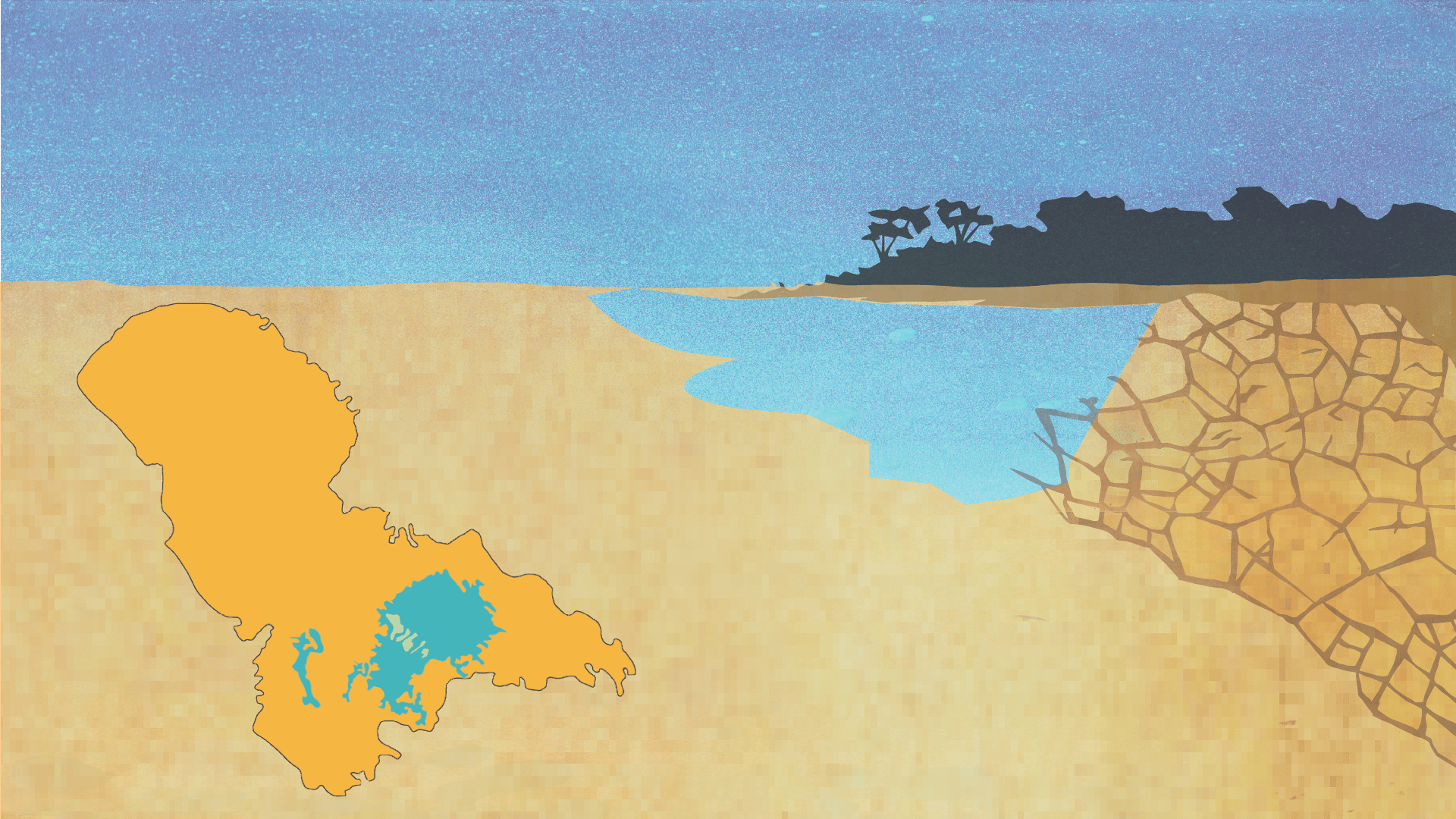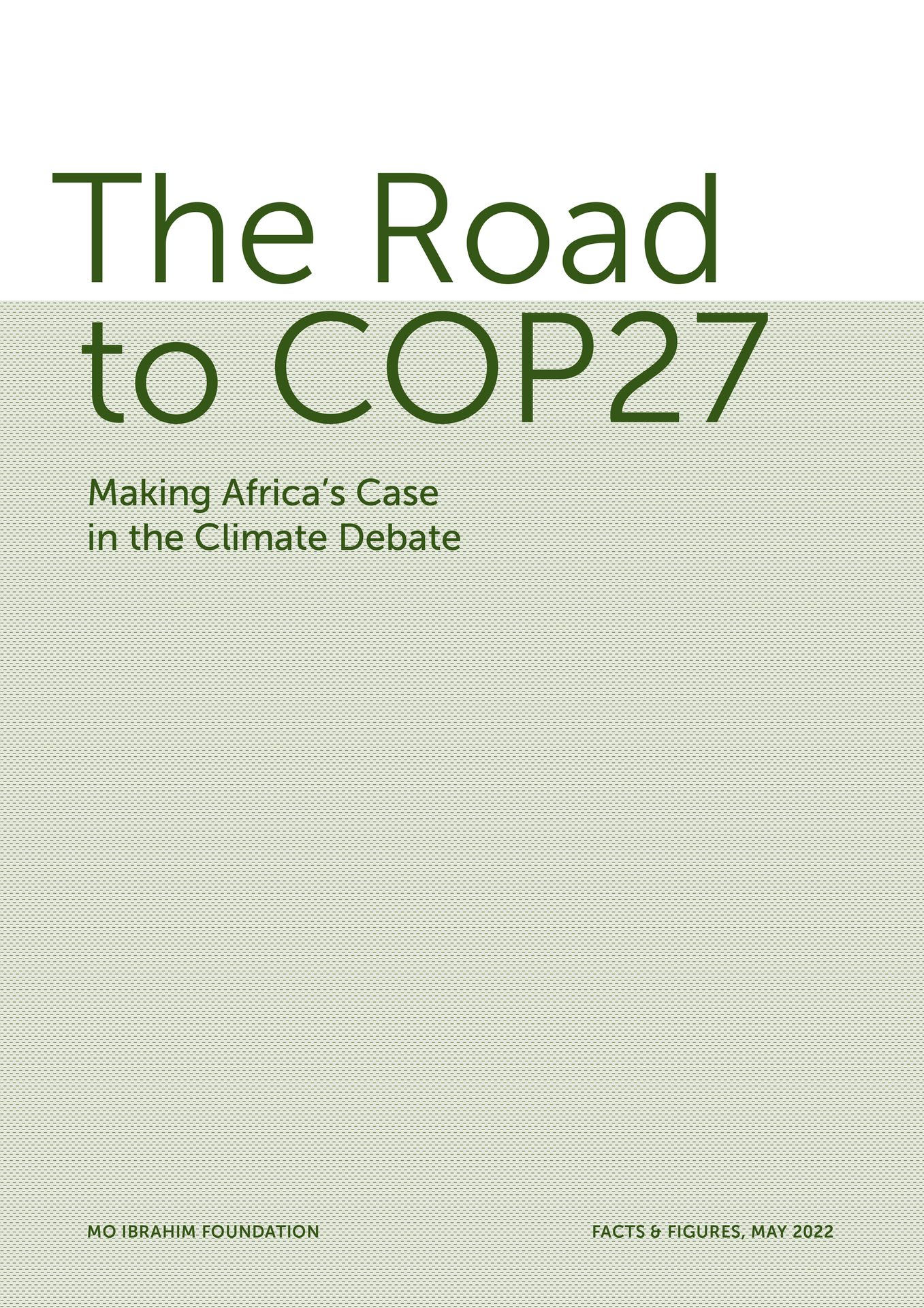Download document

Six months ahead of COP27, and after COP15 on desertification, the Ibrahim Forum aims to inform and articulate Africa’s position in the global debate around climate change.
The Forum is supported by a Facts & Figures document providing the latest data, analysing:
- the specific impacts of the climate crisis in Africa
- the challenge of balancing access to energy and climate protection
- Africa’s potential role in the global fight against climate change.
The effects of climate change are being felt across the world. Africa is hit hard by extreme weather events such as drought and floods, with temperatures rising faster than the global average.
But Africa’s people pay the highest price for climate change, due to a vicious cycle of pre-existing development challenges (poverty, food insecurity, displacement and conflict) that both lower resilience to, and are aggravated by the impact of climate change.
Africa’s vicious cycle



29 African countries have experienced at least one drought event from 2010-2022

Lake Chad has shrunk by 90% in 50 years
people in extreme poverty
people in extreme poverty
in sub-Saharan Africa by 2030
people in extreme poverty
224.4 million
No climate change scenario
264.1 million
A high climate change scenario: 40 million additional people into extreme poverty in sub-Saharan Africa by 2030
High climate change scenario
Without urgent action to address the crisis in Africa, the current impact will only worsen, with an additional 40 million people in sub-Saharan Africa pushed into extreme poverty and over 85 million people in the region migrating or being displaced – more than any other region in the world.



As we head towards COP27, Africa’s specific vulnerabilities must be given full consideration and placed at the centre of global climate solutions. Development-proofing Africa’s climate efforts is key if there is any hope of addressing the climate crisis on the continent.
At COP26, 39 countries and development agencies, including 12 EU countries, pledged to stop funding overseas fossil fuel projects – including natural gas.
This one-size-fits all approach to addressing the climate crisis doesn’t consider Africa’s specific position and development trajectory.
Removing fossil fuel financing, including gas – by far the cleanest fossil fuel – risks kicking away Africa’s development ladder and exacerbating its pre-existing challenges.
Damilola Ogunbiyi
The elephant in the room: access to energy for all

We have to supply adequate clean cooking, we have to supply gas to integrate as a baseload for renewable. Renewables don’t just happen magically.




over
lack access to clean cooking fuels
more than
930 million
600 million
people in Africa still lack access to electricity



A key focus should be placed on energy infrastructure, research & development, and continental integration, to ensure energy distribution bridges gaps within and between countries.
Africa’s best chance of bridging the energy gap, while continuing its transition to renewables, is to be able to tap into a wide range of the continent's energy resources – including abundant reserves of natural gas.
Climate justice cannot jeopardise energy justice.

Africa has a wealth of natural resources, including 30% of the world’s mineral reserves, that will be pivotal to further developing low carbon and renewable technologies across the world, whilst the continent’s ecological wealth will be critical to meeting the planet’s conservation goals.
This natural wealth has the potential to translate into considerable economic gains in terms of job creation, trade, and investment, with the continent becoming a major cornerstone of a low carbon future.
Damilola Ogunbiyi
Africa’s assets are key for a global low carbon future

We have to supply adequate clean cooking, we have to supply gas to integrate as a baseload for renewable. Renewables don’t just happen magically.

of the world’s mineral reserves are in Africa
30%





But while Africa owns key assets to accelerate the global transition to a green and sustainable economy, the ability to realise this potential depends on conditions such as human capital, financial resources, infrastructure, and sound governance.
As demand for green technologies increases globally, lessons must be learnt from the continent’s past experience with mineral resources such as oil and diamonds.
For natural resources to translate into wealth for both people and planet, sound governance and inclusive institutions are key to ensure that transparency, accountability and effective resource management sit at the heart of Africa's agenda.

As the least industrialised continent, Africa has contributed the least to the global climate crisis, yet it is suffering the most from its consequences.
Thanks to its immense ecological and mineral resources, Africa has the potential to be at the heart of a global sustainable future.
It is vital that Africa’s unique position is better understood and taken into account. Leaving Africa out of the equation not only hinders efficient climate action, but also threatens global development and security prospects.
Mo Ibrahim






